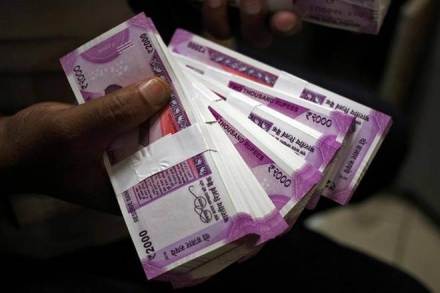Ever since the Narendra Modi government reduced the tax burden on corporates in September, there was speculation about a similar cut in personal income tax rates. A newspaper report on Wednesday quoted unnamed government officials denying any such move, dashing the hopes of India’s middle-class taxpayers. Is India’s tax regime biased against salary earners?
In September, finance minister Nirmala Sitharaman had announced a cut in the corporate tax rate to 22%. The effective corporate tax rate for Indian companies is 25.17% including all cess and surcharges. The tax rate for manufacturing companies set up after October 1, 2019, is just 15%. The government will lose Rs 1.45 lakh crore in tax revenues because of these cuts.
Income tax rates in India are considered high because of a lack of social security coverage and public-funded education and healthcare facilities. Incomes up to Rs 2.5 lakh are exempted from tax, while those between Rs 2.5 lakh and Rs 5 lakh are taxed at 5%. Between Rs 5 lakh and Rs 10 lakh, incomes are taxed at 20% while incomes above Rs 10 lakh are taxed at 30%. With surcharges, the peak income tax rate in India is 42.7%.
A cut in personal income tax would have benefited the government too. The economy is going through a slowdown induced by sluggish demand. A rate cut would have left more disposable income in the hands of middle-class taxpayers that could have led to a revival in demand. The lack of fiscal room may have stopped the government from effecting a cut in income tax rates. The central government is facing a revenue shortfall of Rs 2 lakh crore in the current financial year. It had budgeted a tax mop-up of Rs 24.6 lakh crore for 2019-20, compared with the revised estimate of Rs 22.5 lakh crore for the previous fiscal. Direct taxes contributed 52% of last year’s revenues.
While income tax is levied at 5%, 20% and 30%, long-term capital gains tax is levied at 10% for equity and equity mutual funds. LTCG is taxed at 20% on real estate, debt funds, and any other asset. This means people who go out to work end up paying higher taxes than those who derive their income from betting on stocks or property. There is an inherent injustice in a system where rich people make their money from buying and selling property pay tax at lower rates than an ordinary salary earner who does not own any property. The government should also consider the reintroduction of a wealth tax which was scrapped by former finance minister Arun Jaitley in the Union Budget 2015-16.
The taskforce on the Income Tax Act has submitted its report on the Direct Tax Code to the government in August. Newspaper reports suggest that the committee has recommended wide-ranging changes to the income-tax regime. The government is unlikely to implement these recommendations anytime soon as it could further worsen the revenue scenario. One can only hope that the committee has addressed the anomaly of different tax rates for income from work (salary) and wealth (dividends, capital gains). Any tax reform that doesn’t address this anomaly can’t be considered complete.
